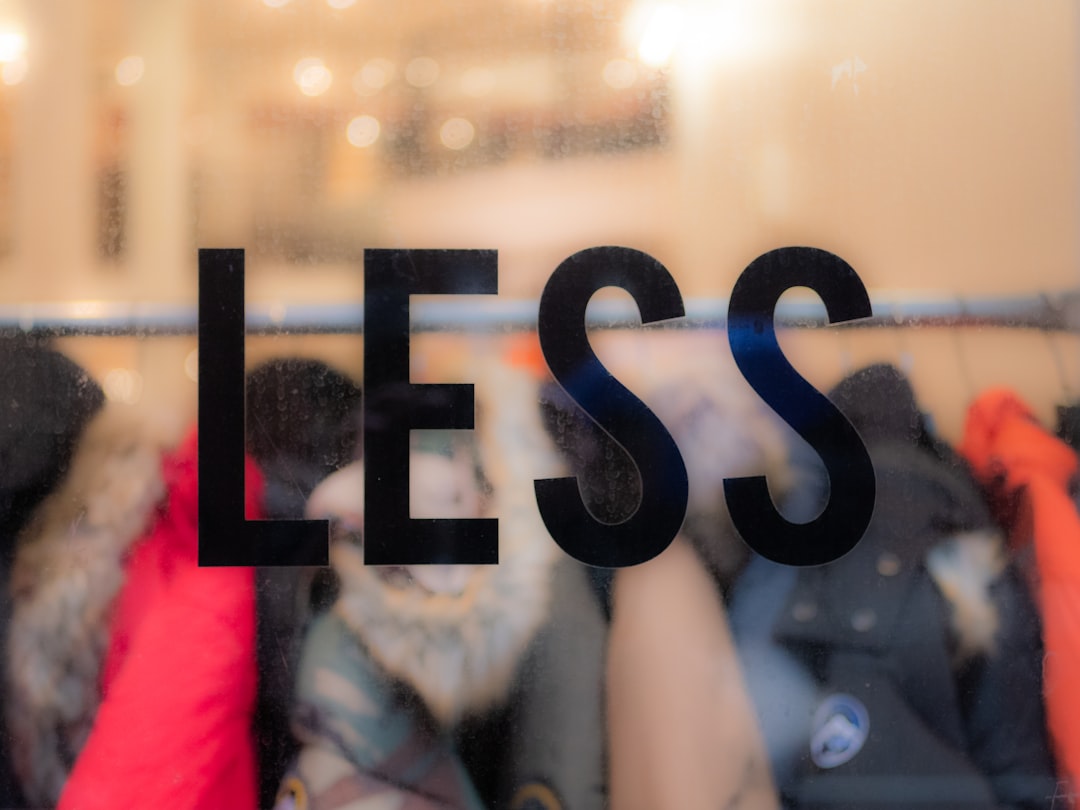Michel Foucault, a towering figure in 20th-century philosophy, has left an indelible mark on various fields, including sociology, political science, and cultural studies. His work delves into the intricate relationships between knowledge, power, and social institutions, challenging conventional understandings of authority and governance. Foucault’s philosophy is characterized by a critical examination of how societal norms shape individual behavior and identity.
He posits that power is not merely a top-down force exerted by institutions but is instead diffuse, operating through a network of relationships that permeate everyday life. This perspective invites us to reconsider the ways in which we understand freedom, autonomy, and resistance within the structures that govern our existence. Foucault’s intellectual journey traverses a wide array of themes, from the history of madness to the evolution of prisons and the dynamics of sexuality.
His seminal works, such as “Discipline and Punish” and “The History of Sexuality,” reveal how societal mechanisms of control have evolved over time, often cloaked in the guise of benevolence. By dissecting these mechanisms, Foucault encourages a critical engagement with the systems that shape our lives. As we navigate the complexities of contemporary digital landscapes, particularly the burgeoning realm of the Metaverse, Foucault’s insights become increasingly relevant.
His philosophy serves as a lens through which we can examine the implications of virtual spaces on identity, power dynamics, and social interaction.
Key Takeaways
- Michel Foucault’s philosophy focuses on power, control, and surveillance in society.
- Foucault views power as a pervasive force that operates through various institutions and practices.
- The Metaverse is a site of surveillance and discipline, where individuals are constantly monitored and regulated.
- Foucault critiques the panoptic nature of the Metaverse, where individuals internalize the gaze of the surveillant.
- The Metaverse also offers space for resistance and subversion, allowing individuals to challenge dominant power structures.
- Foucault is concerned about the commodification of identities in the Metaverse, where personal data and experiences are turned into commodities.
- Despite the risks, the Metaverse also holds potential for new forms of solidarity and community, enabling connections and collaborations across boundaries.
- Foucault calls for critical engagement with the Metaverse, urging individuals to question and challenge the power dynamics at play.
Foucault’s Views on Power and Control
Understanding Power as a Relational Force
Foucault’s conception of power is complex and multifaceted. He argued that power is not simply held by institutions or individuals, but rather it is a relational force that exists within networks of social interactions. This understanding challenges traditional notions of authority, suggesting that power is exercised through various means – discourses, practices, and institutions – that shape our perceptions and behaviors.
The Productive Nature of Power
In this framework, power is not merely repressive; it is also productive, creating norms and standards that govern our lives. Foucault’s analysis reveals how power operates at both macro and micro levels, influencing everything from governmental policies to personal relationships. This highlights the far-reaching impact of power on our daily lives and interactions.
The Concept of Discipline in Modern Societies
Central to Foucault’s exploration of power is the concept of discipline. He contends that modern societies have shifted from sovereign forms of power – characterized by overt displays of authority – to more subtle forms of control that operate through surveillance and normalization. This disciplinary power manifests in various institutions, such as schools, prisons, and hospitals, where individuals are subjected to constant observation and regulation. Foucault’s insights into discipline highlight how societal norms are internalized, leading individuals to self-regulate their behavior in accordance with established standards.
This dynamic raises critical questions about autonomy and agency in a world where individuals are constantly monitored and evaluated.
The Metaverse as a Site of Surveillance and Discipline

As we transition into the digital age, the emergence of the Metaverse presents a new frontier for examining Foucault’s theories on power and control. The Metaverse—a collective virtual space created by the convergence of virtually enhanced physical reality and physically persistent virtual reality—offers unprecedented opportunities for social interaction and identity exploration. However, it also raises significant concerns regarding surveillance and discipline.
In this expansive digital landscape, users are often subjected to extensive data collection practices that track their behaviors, preferences, and interactions. This data serves not only to enhance user experience but also to reinforce mechanisms of control that echo Foucault’s observations about modern disciplinary societies. In the Metaverse, surveillance takes on new dimensions as users navigate virtual environments where their actions are constantly monitored.
In this context, users may modify their behavior based on the knowledge that they are being watched, leading to a homogenization of identities and experiences. The implications of this surveillance extend beyond individual behavior; they also shape collective norms within virtual communities, influencing how users interact with one another and how they perceive themselves within these digital spaces.
Foucault’s Critique of Panopticism in the Metaverse
Foucault’s critique of panopticism provides a compelling framework for understanding the dynamics at play in the Metaverse. The Panopticon symbolizes a form of surveillance that fosters self-regulation among individuals who are aware they may be observed at any moment. In the context of the Metaverse, this concept becomes particularly relevant as users engage with platforms that employ algorithms to monitor their activities and preferences.
The pervasive nature of surveillance in these environments can lead to a chilling effect on creativity and authenticity, as individuals may feel compelled to conform to prevailing norms rather than express their true selves. Moreover, Foucault’s analysis prompts us to consider the ethical implications of such surveillance practices in the Metaverse. The commodification of user data raises questions about consent and agency; users often engage with these platforms without fully understanding the extent to which their information is being collected and utilized.
This lack of transparency mirrors Foucault’s concerns about how power operates insidiously within societal structures, often obscured from public view. As we navigate this digital landscape, it becomes imperative to critically examine the mechanisms of control at play and advocate for greater accountability from those who design and manage these virtual spaces.
The Metaverse as a Space for Resistance and Subversion
Despite the challenges posed by surveillance and control in the Metaverse, Foucault’s philosophy also opens up possibilities for resistance and subversion. While power may be pervasive, it is not absolute; individuals possess agency and can challenge dominant narratives and practices within these virtual environments. The Metaverse offers unique opportunities for marginalized voices to assert their identities and create alternative spaces for expression.
Through avatars and digital personas, users can explore aspects of themselves that may be constrained in physical reality, fostering a sense of liberation and creativity. Moreover, the collaborative nature of many virtual platforms allows for collective action and solidarity among users who share common goals or experiences. Foucault’s emphasis on the importance of counter-conduct—actions that resist established norms—resonates strongly in this context.
Users can engage in acts of defiance against oppressive structures by creating subversive content or organizing movements that challenge prevailing ideologies within the Metaverse. This potential for resistance underscores the importance of critical engagement with digital spaces; rather than passively accepting the status quo, users can actively shape their environments and advocate for more equitable practices.
Foucault’s Concerns about the Commodification of Identities in the Metaverse

The Pressure to Conform
The pressure to curate an appealing online persona can lead individuals to conform to market-driven ideals rather than authentically express themselves. This can result in the suppression of individuality and creativity, as users feel compelled to fit into predefined categories or trends.
Perpetuating Inequality and Normalization
The Metaverse risks perpetuating existing inequalities by privileging certain identities while marginalizing others. Foucault’s critique of normalization becomes particularly relevant in this context, as users inadvertently reinforce societal norms that dictate what constitutes an acceptable identity. This dynamic can stifle diversity and creativity within virtual communities.
Fostering Authenticity and Individuality
The commodification of identities raises ethical questions about ownership and authenticity; who truly owns an identity that has been shaped by external forces? It becomes essential to foster spaces that celebrate individuality while resisting pressures to conform. By doing so, we can create a Metaverse that promotes diversity, inclusion, and authentic self-expression.
The Potential for New Forms of Solidarity and Community in the Metaverse
Despite the challenges posed by surveillance and commodification, the Metaverse also holds promise for fostering new forms of solidarity and community among users. Digital spaces can serve as platforms for connection among individuals who share similar experiences or interests but may be geographically dispersed in physical reality. Foucault’s emphasis on relationality highlights how identities are formed through interactions with others; in this sense, the Metaverse can facilitate meaningful connections that transcend traditional boundaries.
Moreover, virtual communities can provide support networks for marginalized groups seeking refuge from discrimination or exclusion in their everyday lives. By creating safe spaces for dialogue and collaboration, users can engage in collective action that challenges oppressive structures both within the Metaverse and beyond. This potential for solidarity aligns with Foucault’s vision of resistance; when individuals come together to share their experiences and advocate for change, they can disrupt established power dynamics and create more inclusive environments.
Foucault’s Call for Critical Engagement with the Metaverse
In navigating the complexities of the Metaverse, Michel Foucault’s philosophy serves as a vital guide for critical engagement with digital spaces. His insights into power dynamics, surveillance, and identity formation illuminate the challenges we face as we inhabit these virtual environments. While the Metaverse presents opportunities for creativity and connection, it also necessitates vigilance against mechanisms of control that seek to regulate our behaviors and identities.
Foucault’s call for critical engagement urges us to question not only how we interact with technology but also how we can resist its potential pitfalls. By fostering awareness around issues such as surveillance, commodification, and normalization, we can work towards creating more equitable digital spaces that celebrate diversity and promote authentic expression. Ultimately, embracing Foucault’s philosophy encourages us to envision a future where the Metaverse becomes a site not just for consumption but for meaningful resistance and transformative community-building.
If we were to ask the philosopher Michel Foucault about the metaverse in an interview, he would likely delve into the power dynamics at play within this virtual world. Foucault would likely discuss the positive aspects of the metaverse, such as the potential for self-expression and exploration of identity. However, he would also highlight the negative aspects, such as the potential for surveillance and control within this digital space. For further reading on this topic, check out this article on privacy and security concerns in the metaverse.
FAQs
Who is Michel Foucault?
Michel Foucault was a French philosopher, social theorist, and historian of ideas. He is known for his work on the relationship between power, knowledge, and social institutions.
What is the metaverse?
The metaverse is a collective virtual shared space, created by the convergence of virtually enhanced physical reality and physically persistent virtual reality. It is a concept that has gained popularity in recent years with the advancement of virtual reality and augmented reality technologies.
What would Michel Foucault say about the metaverse?
Michel Foucault might argue that the metaverse represents a new form of power and control, as it creates new ways for surveillance and social control to operate. He might also discuss how the metaverse blurs the boundaries between reality and virtuality, and how this impacts our understanding of truth and knowledge.
What positive aspects of the metaverse would Michel Foucault acknowledge?
Foucault might acknowledge the potential for the metaverse to provide new forms of self-expression and identity formation, as well as the possibility for marginalized groups to find community and solidarity in virtual spaces.
What negative aspects of the metaverse would Michel Foucault highlight?
Foucault might highlight the potential for the metaverse to be used as a tool for social control and surveillance, as well as the ways in which it could exacerbate existing power imbalances and inequalities in society. He might also discuss the implications of the blurring of reality and virtuality for our understanding of truth and knowledge.











Leave a Reply